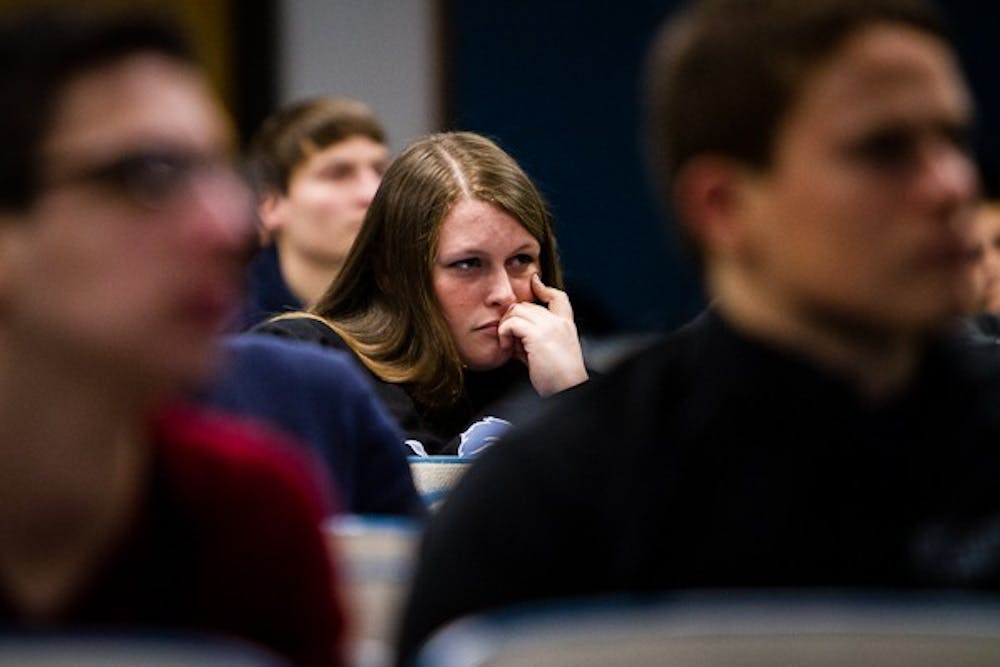Students, faculty debate Internet copyright, censorship at Speak Up, Speak Out forum

The Bovee University Center hosted the fourth Speak Up, Speak Out forum Wednesday night, titled “R They Watching U? Technology, Surveillance, Censorship & Privacy Rights."
This event brought together Central Michigan University students and staff to discuss Internet interaction, censorship and awareness to what truly stays “private” on the web.
SUSO opened its event with nearly 20 minutes of video clips introducing SOPA and PIPA, bills recently introduced in Congress to stop Internet piracy, along with new ways to track individuals breaking the law. These clips were then turned over to the SUSO panel and student audience to discuss online behaviors and control.
“These are complex topics,” said Justin Smith, assistant professor of sociology. “We should be questioning to what extent do schools and universities and the criminal justice system punish folks for their online behavior; we should be at least questioning the rules that are being created. Some of them might be better than others.”
Amanda Garrison, member of the forum panel and professor of sociology, said that she took a lot with her from Wednesday’s event.
“When it comes down to ‘am I going to pay’, even if I don’t have to ... after hearing this I don’t want people who do clerical work to lose their job, so it’s something that I have to consider,” Garrison said.
Besides illegal music downloads and the threats of cyber bullying, the Internet works against us in one major way: “Terms and conditions," panel members stressed. When setting up accounts on any social network site, the final step is usually to agree the terms and conditions issued by each network. Most turn a blind eye to the 20-page document, scrolling to the bottom of the page and clicking the “accept” button, with no idea of what they have actually agreed to.
Finance and law professor, Ken Sanney, broke down the information stated within the terms and conditions, using the example of senior pictures. Sanney said that, as seniors in high school, everyone is eager to post their senior pictures online. These pictures are professionally taken and, most likely, the rights are still owned by the photographer.
Because of the “terms and conditions” box, social networking users sign over use of their pictures to sites like Facebook, who can then use them at their disposal. If Facebook decides to use one of these senior pictures for advertisement, the photographer who owns the picture’s rights can sue Facebook, who can turn right around and sue whoever posted the picture in the first place. This is just one example of censorship hidden within “terms and conditions."
“I’m not trying to scare the students, I was trying to engage them and make them think,” Sanney said. “I do know that some students are harmed by what they place online. If you look at Facebook, it looks like a museum of your life. They are trying to create that air of your life. There is good and bad of it, each of us just has to weigh the cost with the benefit.”



